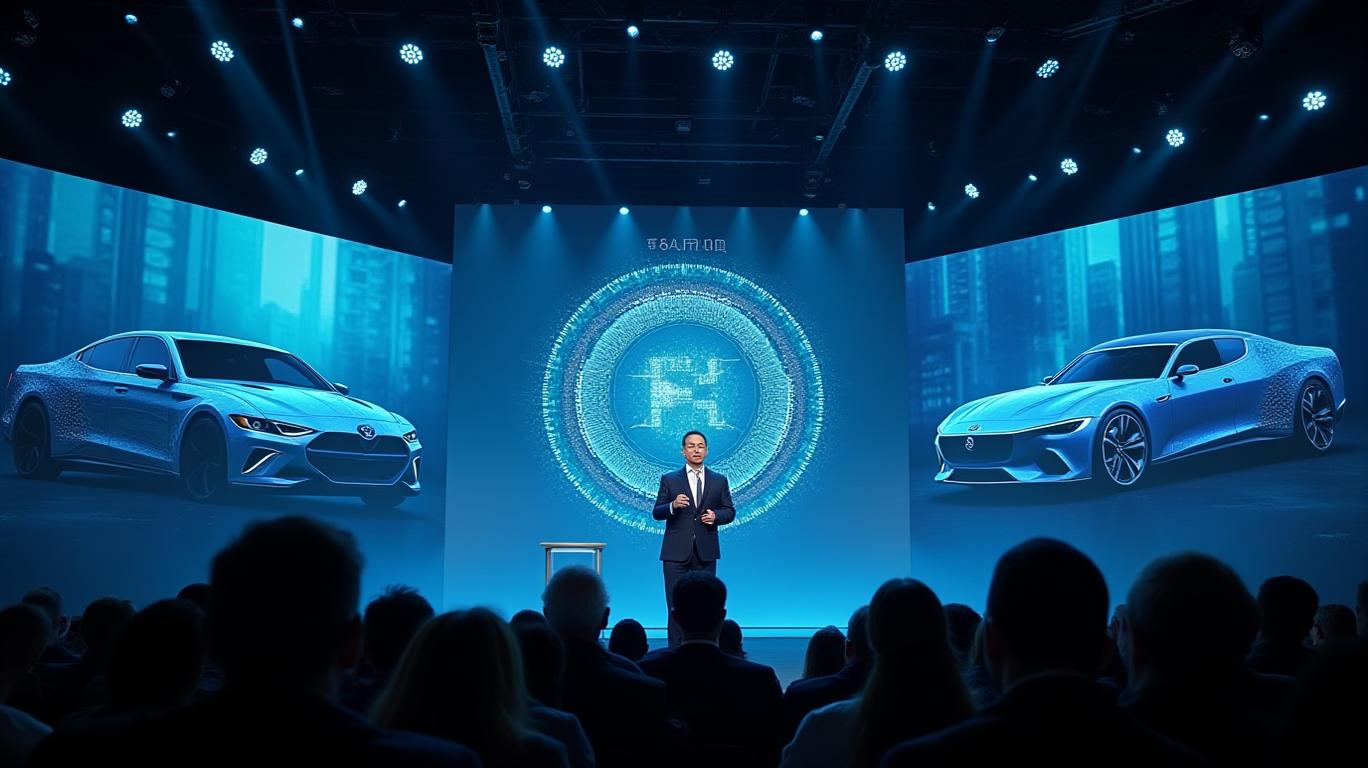Nvidia and Intel Battle for Supremacy in the AI-Driven Automotive Chip Race at CES 2025
The 2025 CES in Las Vegas has highlighted the burgeoning role of automotive technology, with over 250 companies showcasing innovations related to the integration of AI in vehicles. Among the giants aiming for leadership in this domain are Nvidia, Intel, and several Chinese firms, all of which are vying to capture the growing automotive chip market.
Nvidia has positioned itself at the forefront, with CEO Jensen Huang focusing on automotive applications in his keynote address. He touted the expansive potential of the autonomous driving sector, projecting Nvidia's automotive revenue to reach $5 billion by fiscal year 2026. Central to this strategy is the Thor chip, a next-generation automotive processor that outpaces its predecessor Orin by a factor of twenty in computing power. Despite its delayed production, Nvidia's extensive network of automotive partners remains robust, although some companies like Xpeng and NIO have pivoted to developing their own chips due to Thor's postponement.
Separate from its chips, Nvidia unveiled its Cosmos framework, designed to facilitate realistic environmental scenarios for training AI models in autonomous driving, potentially smoothing the path for broader implementation by surmounting the challenge of long-tail scenario data collection.
Meanwhile, Qualcomm maintained its steady path by unveiling collaborations across its Snapdragon platform, enhancing digital cockpit and autonomous driving functionalities. Conversely, Intel made notable announcements that included their Adaptive Control Unit (ACU) and their new discrete graphics B-series, marking a deeper commitment to automotive innovation. These offerings aim to efficiently manage in-car AI workloads while addressing energy consumption challenges.
Despite entering the automotive arena later than established competitors like Nvidia and Qualcomm, Intel aims to leverage its significant computing heritage. Its strategy focuses on creating scalable solutions with varying configurations to cater to diverse automotive needs, echoing the transformative trajectory seen in previous computing eras like PCs and servers.
Looking ahead, as the global automotive landscape continues to shift towards electric vehicles, chip manufacturers face both challenges and opportunities. The advent of these new technologies at CES 2025 underscores a vibrant and competitive market, with potential hurdles in energy efficiency and cost management still looming. Nonetheless, the long-term demand for sophisticated automotive chips seems firmly on an upward trajectory, promising continued growth in the sector.

Stay ahead with real-time Wall Street scoops.
Latest Articles
Stay ahead of the market.
Get curated U.S. market news, insights and key dates delivered to your inbox.

Comments
No comments yet